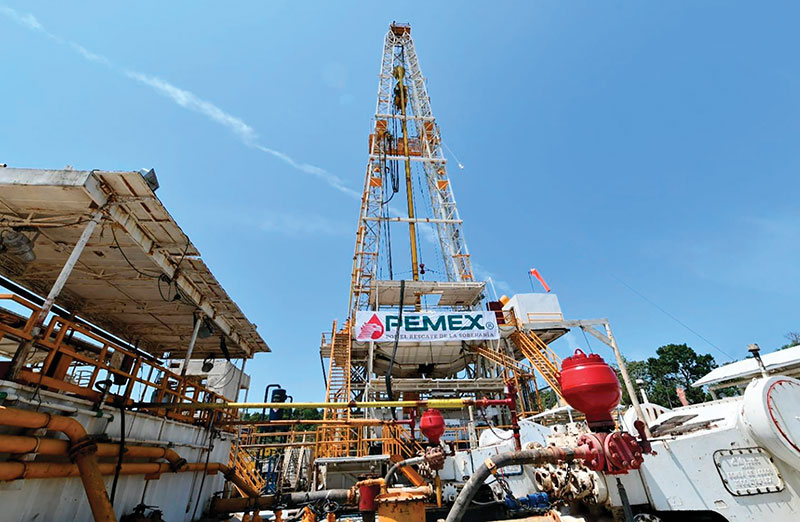June 2022, Vol. 249, No. 6
Features
Russia’s War on Ukraine Rippling Through Latin America
By Mauro Nogarin, P&GJ Correspondent, Central & South America
In Latin America, the effects of the war in Ukraine are having a major impact on the fragile economies that are still gradually recovering from the pandemic.
Some countries that pay fuel subsidies are taking the brunt of this, trying to maintain livable prices to avoid social conflict.
Other, more fortunate, nations have slightly increased the cost of fuel, thanks to stability funds, as is the case of Chile. However, other countries that do not have sufficient oil production are faring much worse.
Venezuela
Even though production is still limited, Venezuela has benefited the most, with an improving economy thanks to the increase in prices.
According to data provided by Petróleos de Venezuela (PDVSA) to OPEC, the state-owned oil and gas company accumulated about $1.55 billion in the first two months of 2022, a 50% increase over the same period of 2021.
The catalyst for this bounce is credited to an increase in the price of Merey crude oil, a particularly sour and heavy blend. In January, PDVSA’s revenues reached $525 million while those of February more than doubled to $1.36 billion, with Merey prices reaching $65 and $70 a barrel.
Production levels and exports also rose significantly. In January, PDVSA exported an average of 416,000 bpd, and the level in February improved by more than 75%, reaching 730,900 bpd.
According to PDVSA forecasts, the income derived from exports in 2022 could improve between 50% and 70%, compared to the previous year.
Argentina
Although liquids production reached 571,000 bpd, with 224,000 bpd coming from Vaca Muerta shale field, that level is not enough to fully repair the nation’s fragile energy situation, considering that winter is approaching.
The demand for diesel at this time of year rose significantly due to the soybean and corn harvest, and the national oil company YPF was forced to increase fuel prices by 10%. The increase was applied to offset part of the increases in the international price of oil brought on by the war in Ukraine.
Brazil
In the case of oil, the situation generated an increase in fuel petrochemical products prices, and the state communication agency EBC pointed out that prolonged war in Ukraine will inevitably increase inflation in Brazil.
Recently, Petrobras announced an increase in the prices of gasoline and diesel after almost two months of prices at refineries. The average sale price of gasoline rose to $5.93 per gallon.
In the case of liquefied petroleum gas (LPG) from Petrobras to distributors, a 16% adjustment was made, from $0.82 to $0.95 per kilogram.
A survey carried out by the Brazilian Association of Fuel Importers (Abicom) showed that the average values of Petrobras diesel and gasoline in refineries had hit a 25% lag with respect to import parity, a level that has not been seen for 10 years.
Bolivia
The situation in Bolivia has been complicated because of the increase in the state subsidy to import fuels such as diesel and gasoline. However, the increase in income from higher prices for natural gas that the nation exports to Bolivia, Argentina and Brazil can partially offset the effect.
According to data from the state company YPFB, in 2019 the subsidy for fuels reached $700 million. For this year, it will increase to $1 billion. Currently in Bolivia the price of gasoline is $0.54 per liter and $0.56 for diesel.
Colombia
After the U.S. decided to stop importing Russian oil, the president of Colombia offered to pick up part of the slack. The Minister of Mines and Energy assured the U.S. it can add 40,000 bpd to the 200,000 bpd currently in ships.
Colombia, in part due to its greater production of hydroelectric energy in 2021, was able to reduce the importation of LNG by 80%. So far, it has been able to maintain that level.
Chile
The Chilean government sent a bill to the National Congress to increase the resources to fund the stabilization of fuel prices from $700 to $1,500 million, due to the increase in the international price of oil generated by the invasion of the Russian army in Ukraine.
The bill was sent to the Chamber of Deputies to extend the funds of the Mepco (Fuel Price Stabilization Mechanism).
Ecuador
Although the government in 2021 spent $1.08 billion for fuels (gasoline, diesel and LPG), with the increase in international prices, this subsidy will increase by an average of 45%, reaching $1.5 billion.
According to data from the National Chamber of Distributors of Petroleum Derivatives of Ecuador (Camddepe), the amount of the subsidy went from $0.34 to $0.55 per gallon for gasoline. Meanwhile, the diesel subsidy has risen from $0.90 to $1.14, based on current market conditions.
Mexico
The Ministry of Economy has been clear that the prices of gasoline and diesel will not increase and will remain between $1.10 per liter ($4.16 per gallon) and $1.2 per liter ($4.53 per gallon).
The Minister of Economy stated, “Pemex has maintained the supply of gasoline and has inventories of national production and availability of imports to supply the demand in the north and in all regions of the country.”
However, according to S&P Global Ratings, Pemex is expected to use the boost in revenues from the sale of oil primarily to pay down debt this year.






Comments